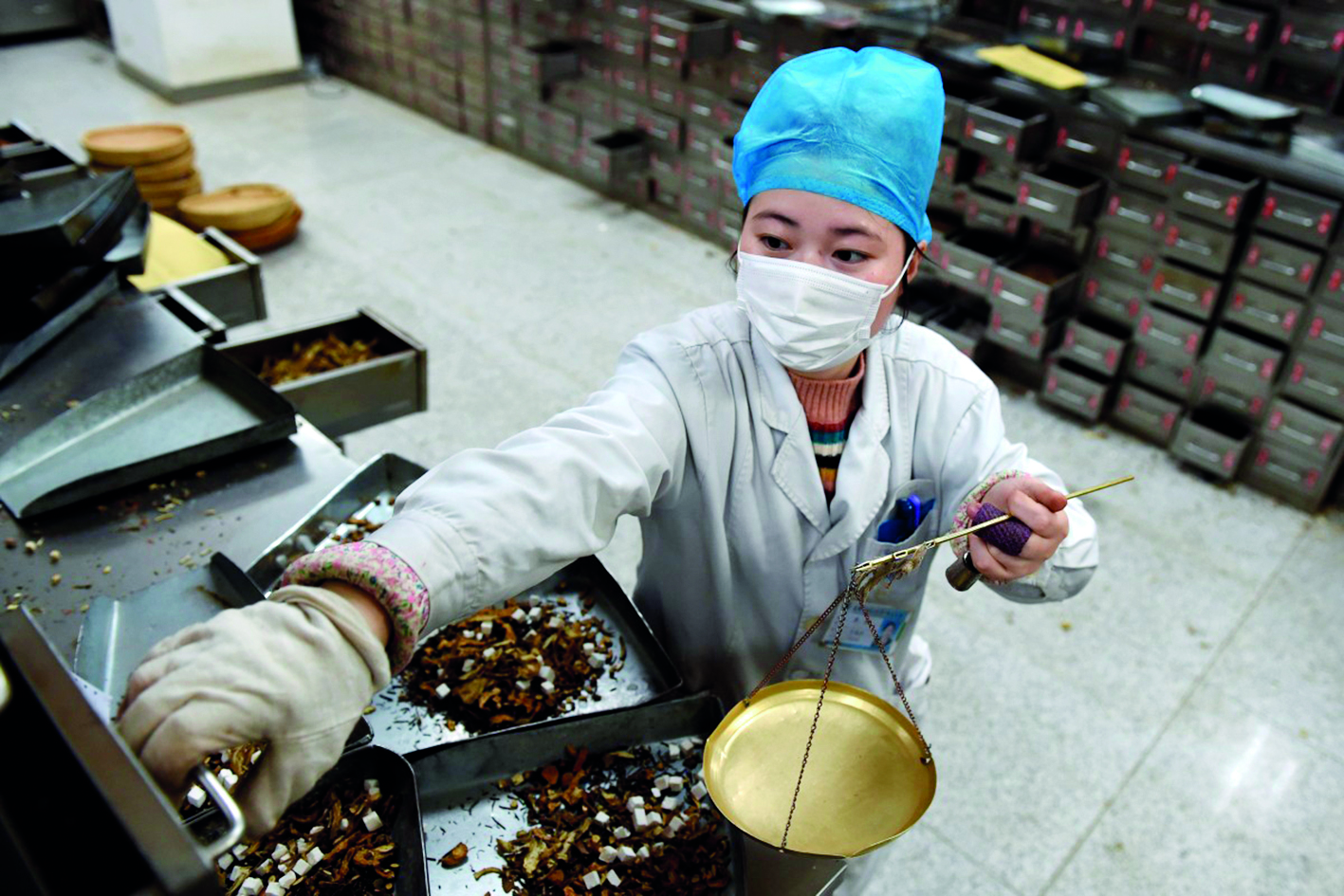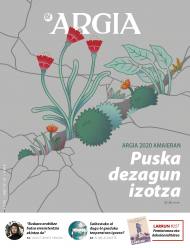If the World Health Organization has started studying herbs that could alleviate COVID-19
- In the Basque Country you will hardly find a doctor in the public health system that recommends the prevention of COVID-19, and even less if you already have symptoms, herb or other natural remedy, do not mention homeopathy or other heresies. Don't dream about paying for social security. But it's not the same thing all over the world. The World Health Organization itself has also begun to investigate the properties of some herbs for Africa, yes.

In May 2020, the World Health Organization alerted the African population about the use of traditional herbs among coronavirus treatments: “Care must be taken of the effectiveness of some remedies, especially with the misinformation that is made on social networks.” The African Artemis (Artemisia afra) remedies, which had long been used against malaria, had lifted a great wave from Madagascar across the continent. In September, however, the WHO reported in a very different tone: “The Regional Committee of Experts in Traditional Medicine has agreed on a protocol to analyze herbal remedies for COVID-19 in phase III clinical trials. He has also detailed information on clinical demonstrations of herbal remedies and measures to ensure the absence of risks.” What has led the WHO to change its mind?
Journalist Fatima Khan has asked the experts in Roving Reporters magazine in South Africa for their work on the Internet. The chairman of the new commission and head of pharmacology at the University of the Free State of South Africa, Motlalepula Gilbert Matsabisa, says that his work will guarantee the population the use of the capabilities of traditional remedies to deal with the pandemic, and that in Africa at least the campaign against COVID-19 has entered a more pragmatic era, with the collaboration of groups fighting in health.

With the pandemic there were more and more people in Africa with artemisia (Artemisia anua and Artemisia afra) and in April the president of Madagascar, Andry Rajoelina, recommended to the population on TV to take Covid-Organics with artemitas. WHO has already recognized artemisia in malaria protocols. The special committee will now look into whether it is capable of dealing with COVID-19 and under what conditions. Artemisio tests are also being conducted in the rich world, for example in Germany the Max Plank Institute with the US company ArtemiLife.
In China, they haven't waited for the WHO. The Chinese National Traditional Medicine Administration has been integrated into the Chinese Ministry of Health since 1949. The media Herria Gaur, the official publication of the Chinese Communist Party (which also has Spanish version), awarded the following title in March to one of its news items: 6 effective traditional Chinese medicines for the treatment of COVID-19. They are formulations composed primarily of herbs and plants, also used for COVID-19 because of the experience acquired in other previous epidemics: Qinggan, Lianhua Qingwen, Xuebijing, HuaShiBaiDu Some have been used in mild cases and others in severe cases, either individually or in combination with “western medicine” medicines (in their own words). According to this central publication of the Communist Party, most of those affected by the new coronavirus in China have used traditional remedies. Cuba is another country that, in addition to Western or allopathic medicine, has had to repair old, natural or complementary remedies, since the West made it inaccessible by blocking many of the medicines that are common to us.

Vaccine on the right, propolia on the left
In July, the Cuban Ministry of Health presented with the title Medicinal plants, homeopathic medicine and immunity some of the medicines available to citizens. For example, it says that the production and consumption of the formulation called Imefasma has been extended. Imefasma consists of the flowers of majagua (Hibiscus elatus), aloe vera and banana juice (Musa paradisiaca).
To strengthen immunity, he also refers to the action that so many citizens use in our country (Echinacea purpurpurpurea), the “cat’s claw” (Uncaria tormentosa) and in particular the “añamu” (Petiveria aliacea): “This is probably – as the official statement points out – the best studied by the National Center for Scientific Research of Cuba.” It also refers to another product called nutrisol, consisting of banana and propolis juices and honey bees.
The Cuban public health system has more proposals than in Euskal Herria would call the health orthodox: “Homeopathic medicines are added to plant remedies. PrevengoHo-Vir has been distributed across the country as part of strategies to address COVID-19. (…) The basic table of natural products also includes AliviHo-Immune, another homeopathic medicine.”

In addition, Cuba attends with allopathic medicine the cases of COVID-19 that are the most median and, above all, the most serious. The well-known Interferon alfa 2b and the monoclonal antibodies CIGB 2, Itolizumab and Sprinklizumab, created by genetic manipulation by the Cuban biotechnology industry, reflect the protocols established by Havana in response to the pandemic. Without forgetting your own vaccine in development, in the new version of Soberana-2.
What the WHO wants to do now in Africa with wool production – research and scientific evaluation – is something that many others have been doing in the world for some time with bee products, especially with propolia. Not just Cubans. In August, the scientific journal Biomedicine & Pharmacotherapy has written David De Jong and four other researchers Propolia and its potential in the article against the mechanisms of SARS-CoV-2 infection and COVID-19, the pandemic has increased interest in this remedy produced by bees worldwide, from the US.
Summarizing the abundant scientific literature, the study has highlighted two important characteristics of the propolia produced by bees with the bioactive resins of plants: on the one hand, it has been shown to have an anti-virus effect when it is so difficult to find remedies against viruses and, on the other, with COVID-19 it can block the inflammatory attacks that the patient may suffer.

In the article by De Jong and others there is a message for researchers looking for tools to deal with COVID-19, concerned about the lack of standardization of natural products: “Standardized propolias today are many in the world and have the right properties for the laboratory and clinical uses.”
A second message, addressed to the public, especially those people who, without waiting for serious aggression, want to do prevention: “Given the seriousness of this pandemic and the limited therapeutic possibilities that exist for it, propolia is a functional food with safe therapeutic values, easy to take orally and available”. It must be taken into account to survive this great fire.

























